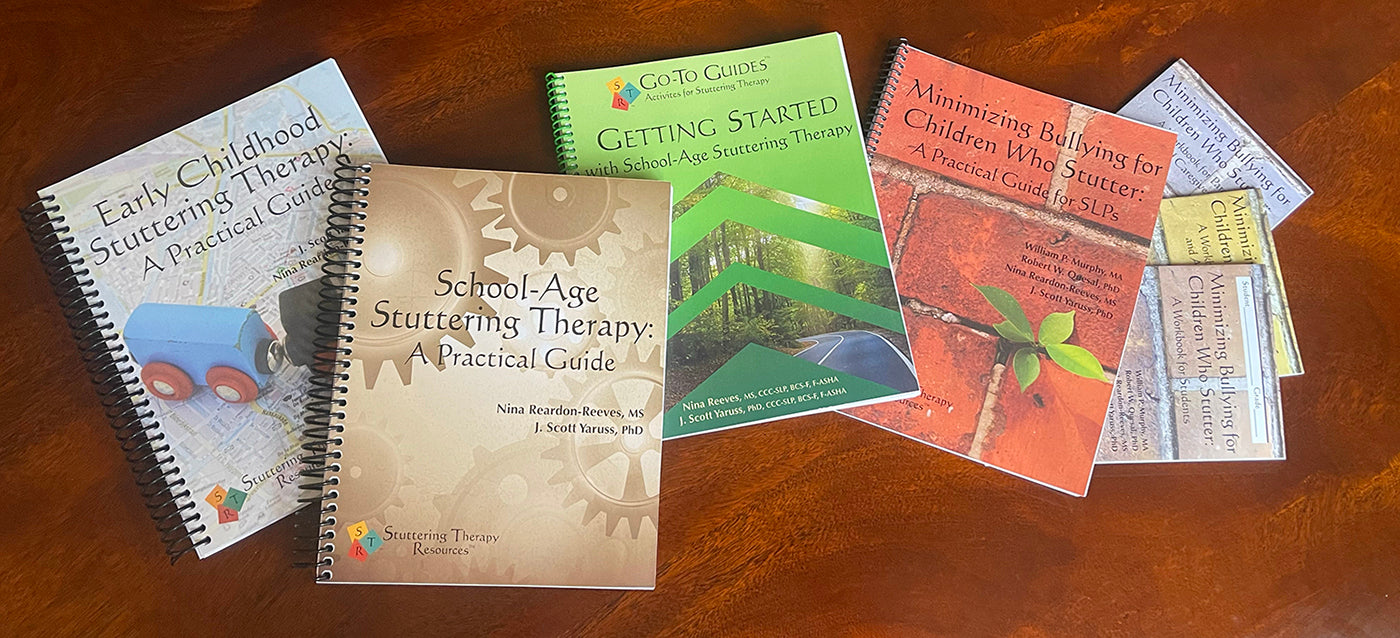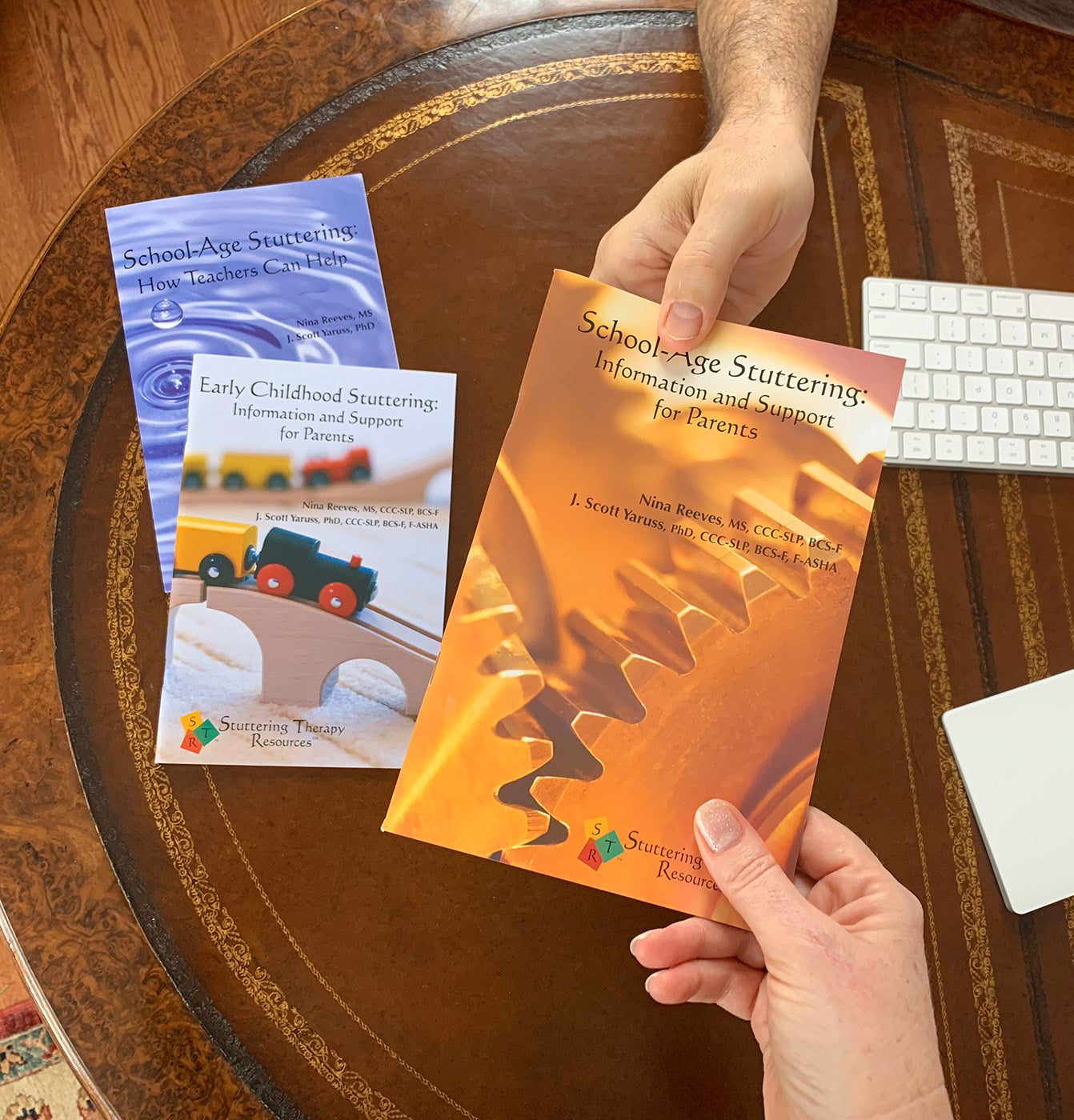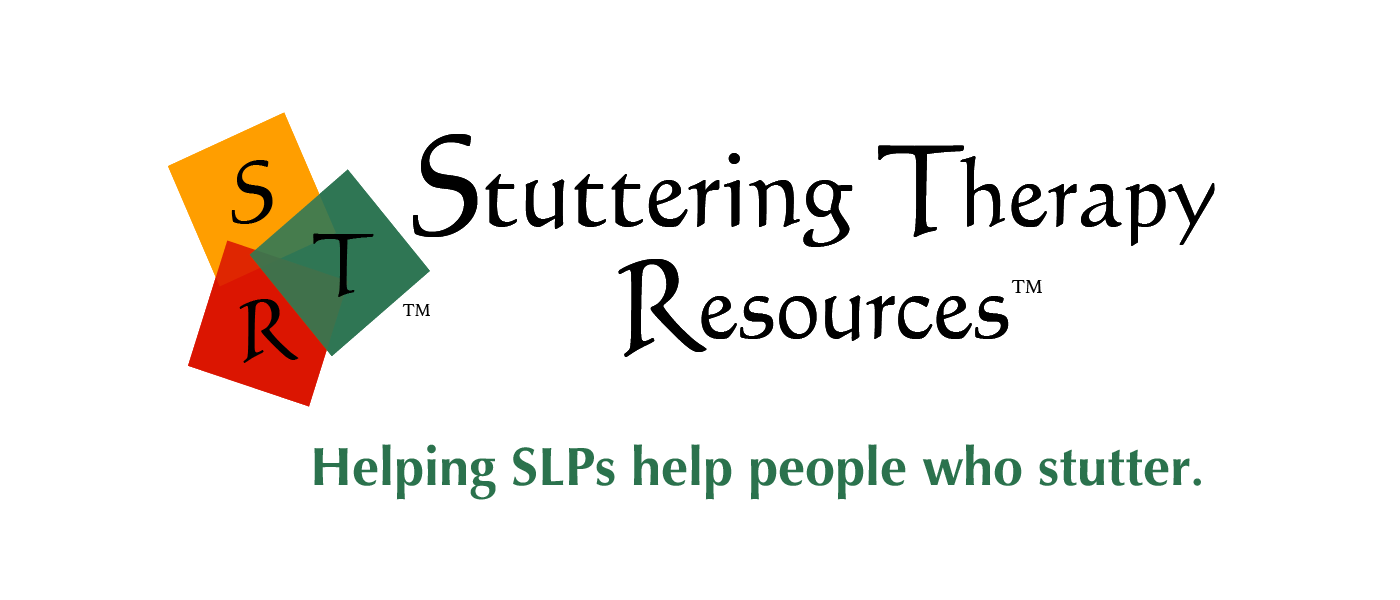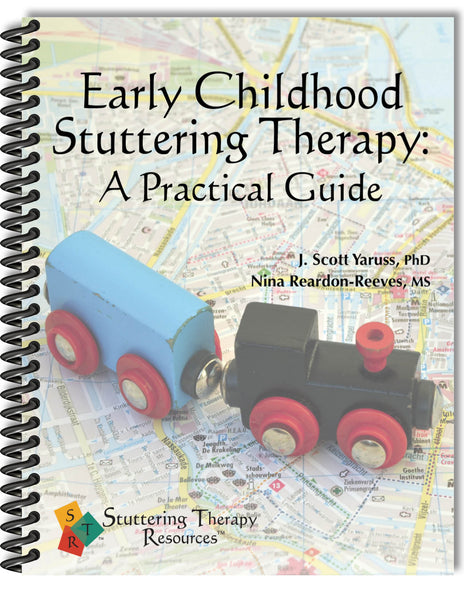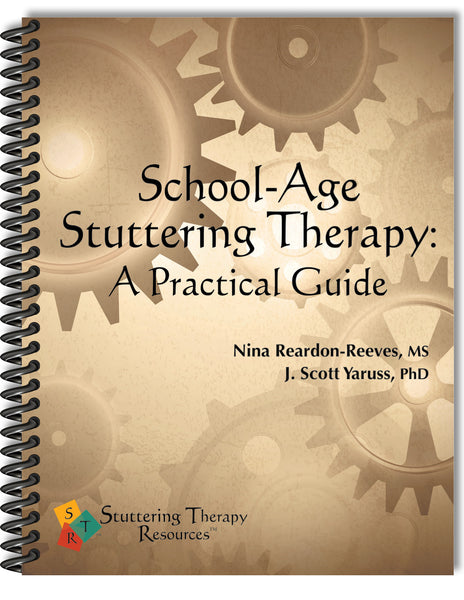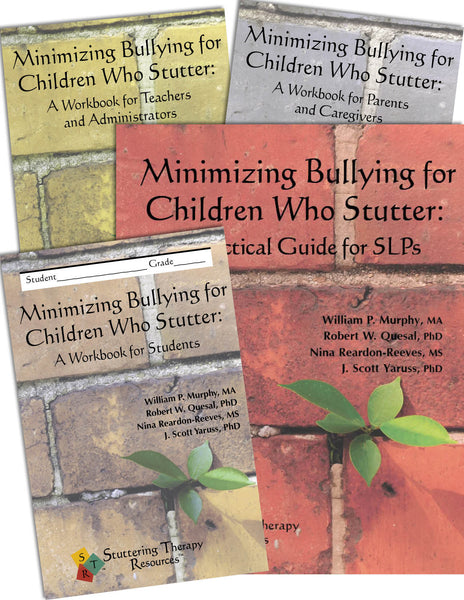Our Best-Selling Therapy Guides Are Now Available in Print and Digital Versions
SLPs Love STR!
Early Childhood Stuttering Therapy is an amazing read and extremely practical. I don’t remember enjoying a manual like this in. . . EVER! It is informative and easy to understand—and the visuals and handouts are so useful.
Thank you for the OASES assessment. Using it this week with two 4th and 5th grade students was so enlightening. I wish there were assessments like this for ALL the communication disorders!
Just ordered ANOTHER copy of School-Age Stuttering Therapy: A Practical Guide—I keep lending mine out and not getting it back! Thanks for a great resource!
As an SLP and person who stutters, I definitely love Stuttering Therapy Resources and all it offers the field of speech-language pathology—books, blog, and social media.
Just wanted to write a quick note to say a HUGE thank you to Scott and Nina for the well-crafted, practical videos for parents in this time when communication is more crucial than ever. The videos say exactly the message I wish to deliver to "my parents."
I had the most powerful and moving IEP of my career yesterday, and it was all in thanks to you! You have helped me see stuttering in a whole new light, and it has already made an impact on others.... so... THANK YOU!
Practical Thoughts Blog
Why can stuttering be so confusing to listeners? Part 1: Variability

Stuttering varies. Everyone knows that. The amount of stuttering that people experience on the inside or show on the outside changes depending upon the situation in which they are speaking, the specific speaking task in which they are engaged, the conversational partner or listener to whom they are speaking, and more; it also varies at different points in time, within the same day or across...
Remembering our dear friend, Bill Murphy
Bill was a pioneer in our field—a true “clinician’s clinician,” who did groundbreaking work in bringing resources from counseling psychology and social work to the field of speech-language pathology.
Understanding Stuttering Through A Wide-Angle Lens: Information for Parents and Caregivers

As a parent or caregiver of a child who stutters, it is natural to be concerned about your child's speech and curious about how to help them. We hope this blog is one of many resources that can build your knowledge and understanding of your child’s experience of stuttering. Because stuttering is a neurologically based speech difference, there are no easy ways to help children...
What is my current definition of stuttering?
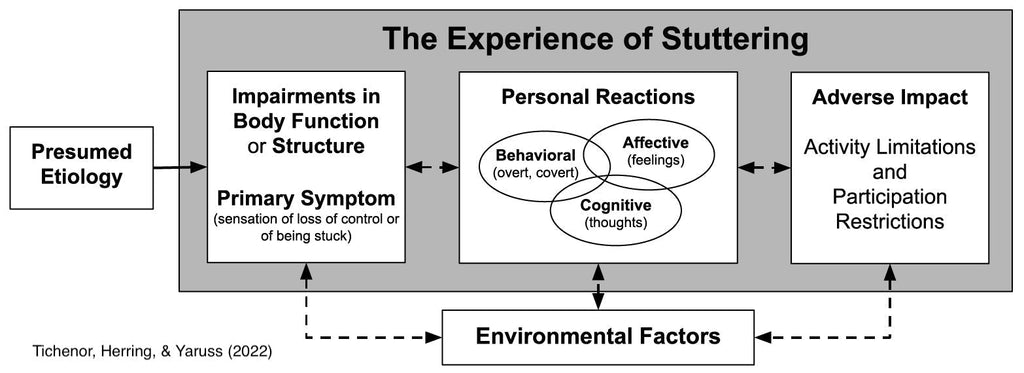
The other day, I received an email asking me what my current definition of stuttering is... My first thought was, well, do you have an hour? There's so much to say! Plus, it's sort of a work in progress, as my understanding is always changing based on recent research and new insights from people who stutter. The inquiry challenged me to type out my current...


